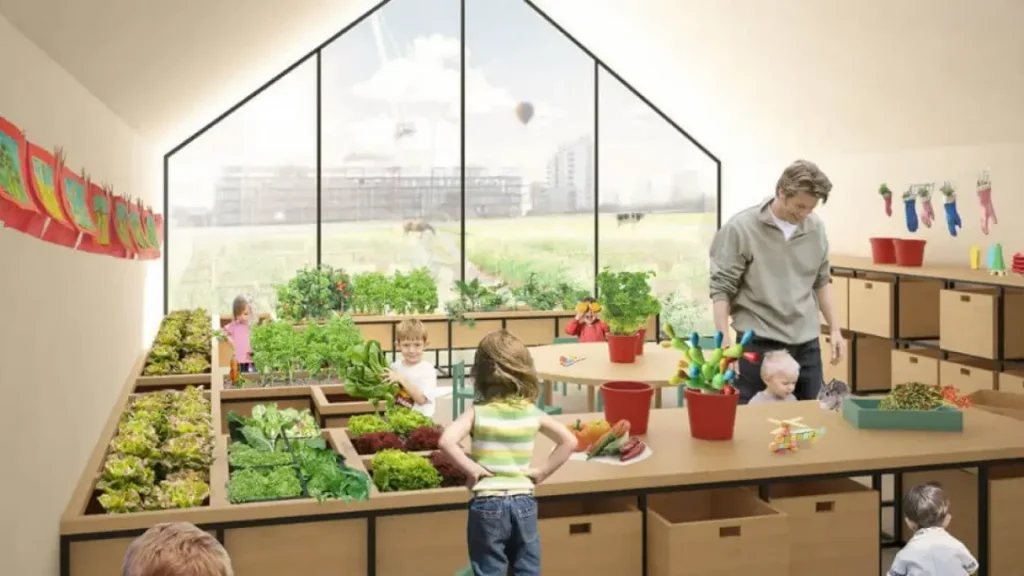Why NJ Farm to School Gardens Are a Model of Sustainable Development
In recent years, sustainable agricultural practices have gained significant traction, especially in educational institutions looking to instill responsible farming habits in younger generations. One of the best examples of this initiative is the NJ Farm to School program in New Jersey. These gardens are not only a source of fresh, local produce for school meals but also serve as an educational platform that promotes environmental responsibility, community involvement, and long-term ecological sustainability.
The Core Principles of NJ Farm to School Gardens
NJ Farm to School gardens are built on several fundamental principles that make them a model of sustainability. They integrate hands-on education, efficient resource use, and strong community engagement to create a system that benefits both students and the environment.
Educational Impact and Hands-On Learning
One of the most remarkable aspects of these gardens is their ability to provide real-world learning experiences. Students engage in planting, tending, and harvesting crops, learning the science behind sustainable agriculture. These activities help reinforce classroom lessons in biology, ecology, and nutrition while fostering a deeper connection with nature. Schools incorporate gardening into their curriculum, ensuring that students understand the value of fresh produce and the environmental impact of food choices.
Water and Resource Conservation
Sustainability is at the core of NJ Farm to School gardens, with careful management of water, soil, and other natural resources. Many of these gardens use rainwater harvesting systems, drip irrigation, and composting techniques to minimize waste. Soil health is maintained through natural fertilizers and crop rotation, reducing the need for chemical interventions. These practices ensure that the gardens remain productive without causing harm to the environment.
Local and Seasonal Produce
A key feature of these gardens is their focus on growing local and seasonal produce. This approach reduces the carbon footprint associated with food transportation while ensuring that students have access to the freshest, most nutritious ingredients. By working with local farmers and suppliers, NJ Farm to School programs strengthen regional food systems and encourage a more localized economy.
Community Involvement and Long-Term Sustainability
Sustainability extends beyond environmental concerns—it also involves social and economic factors. The success of NJ Farm to School gardens largely depends on strong community involvement, with parents, teachers, and local businesses contributing to the initiative. Volunteers help maintain the gardens, donate materials, and organize educational workshops, creating a sense of shared responsibility for the program’s success.
Many schools also collaborate with local farmers’ markets to sell surplus produce, using the proceeds to fund further sustainability projects. These efforts create a cycle of support where the gardens not only educate students but also provide tangible benefits to the broader community.
Sustainable Practices in NJ Farm to School Gardens
The following table summarizes some of the key sustainable practices implemented in NJ Farm to School gardens:
| Sustainable Practice | Description | Impact on Sustainability |
|---|---|---|
| Rainwater Harvesting | Collecting and storing rainwater for irrigation | Reduces water waste |
| Composting | Recycling organic waste into natural fertilizer | Enhances soil fertility |
| Crop Rotation | Changing crops each season to maintain soil health | Prevents soil depletion |
| Integrated Pest Management | Using natural predators to control pests | Reduces chemical use |
| Seasonal Crop Selection | Growing produce suited to the local climate | Lowers carbon footprint |
Challenges and Future Growth
Despite their success, NJ Farm to School gardens face certain challenges. Limited funding, maintenance difficulties, and climate variability can impact the sustainability of these programs. However, through continued advocacy, government support, and increased community engagement, these gardens can expand and serve as a replicable model for other regions looking to integrate sustainable agricultural education into their school systems.
Conclusion
NJ Farm to School gardens are more than just sources of fresh produce—they are living classrooms that promote sustainable agriculture, environmental stewardship, and community engagement. By incorporating water conservation techniques, organic farming practices, and local food sourcing, these gardens set an example of how schools can contribute to sustainability while enriching students’ educational experiences. As the demand for environmentally conscious initiatives grows, NJ Farm to School gardens stand as a beacon of responsible agricultural education and community-driven sustainability.

